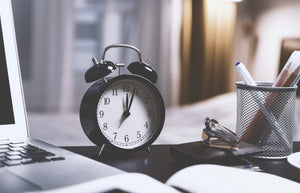The shift towards remote work, accelerated by covid, has introduced a new set of challenges. While working from home offers flexibility and eliminates commuting, it can blur the line between work and personal life, potentially impacting mental health. We explore the effects of remote work on mental health and suggests best practices for achieving a flow state and maintaining productivity at home.
The Impact of Remote Work on Mental Health
Remote work can lead to feelings of isolation and loneliness due to reduced social interaction. It can also increase stress levels as individuals struggle to balance work and personal responsibilities within the same space. A lack of physical boundaries between work and home can make it difficult to switch off, leading to burnout.
Creating Flow and Productivity at Home
Flow state, also known as "being in the zone," is a mental state where you're fully immersed in an activity, leading to heightened focus and productivity. Here are some best practices to achieve flow state and maintain productivity while working remotely:
-
Create a Dedicated Workspace: Set up a workspace that's separate from your personal space to establish a physical boundary between work and leisure. This could be a specific room or a dedicated corner within a room.
-
Establish a Routine: Just like you would in an office, create a routine that signals the beginning and end of your workday. This could involve getting ready in the morning, having a lunch break, and setting a specific time to stop working.
-
Take Regular Breaks: Breaks can prevent burnout and maintain productivity. Try using techniques like the Pomodoro Technique, where you work for 25 minutes, then take a five-minute break.
-
Stay Connected: Regularly communicate with colleagues and managers through digital tools to reduce feelings of isolation. Consider setting up virtual coffee breaks or social events.
-
Practice Mindfulness and Exercise: Incorporate mindfulness exercises, like meditation or yoga, into your daily routine to reduce stress and improve focus. Regular physical exercise can also boost your mood and energy levels.
-
Prioritize Sleep: Ensure you're getting enough sleep. Good sleep hygiene leads to improved concentration, higher productivity, and better mental health.
-
Limit Distractions: Try to eliminate potential distractions in your workspace. This could involve using noise-canceling headphones, turning off unnecessary notifications, or setting boundaries with those sharing your living space.
While the shift to remote work can pose mental health challenges, implementing strategies to create boundaries, maintain a routine, and prioritise self-care can significantly improve your experience. By adopting these best practices, you can achieve a flow state and maintain productivity while taking care of your mental well-being. Remember, it's essential to reach out to a mental health professional if you're feeling overwhelmed or unable to cope. You're not alone, and there are resources available to support you.


 Embracing Boredom and Functional Mushrooms. For Creative Superpower
Embracing Boredom and Functional Mushrooms. For Creative Superpower
 Fasting - The Original Reset for Body and Mind
Fasting - The Original Reset for Body and Mind
 Live in Flow - The Transformative Power of our Mushroom Meditation
Live in Flow - The Transformative Power of our Mushroom Meditation
 10 Reasons why you should be embracing flow state
10 Reasons why you should be embracing flow state
 5 Key reasons to incorporate functional mushrooms into your wellness routine
5 Key reasons to incorporate functional mushrooms into your wellness routine
 Productivity for a Life of Passion and Purpose
Productivity for a Life of Passion and Purpose
 10 Positive Habits for Holistic Wellness
10 Positive Habits for Holistic Wellness
 How Positive Habits Can Transform Your Life
How Positive Habits Can Transform Your Life
 Meditation's Impact on Productivity and Mental Well-being
Meditation's Impact on Productivity and Mental Well-being
 Discovering Your Purpose and Passion
Discovering Your Purpose and Passion
 Time Management vs.Time Boxing
Time Management vs.Time Boxing
 Navigating Remote Work and Mental Health
Navigating Remote Work and Mental Health
 Functional Mushrooms for Cognitive Function and Focus
Functional Mushrooms for Cognitive Function and Focus